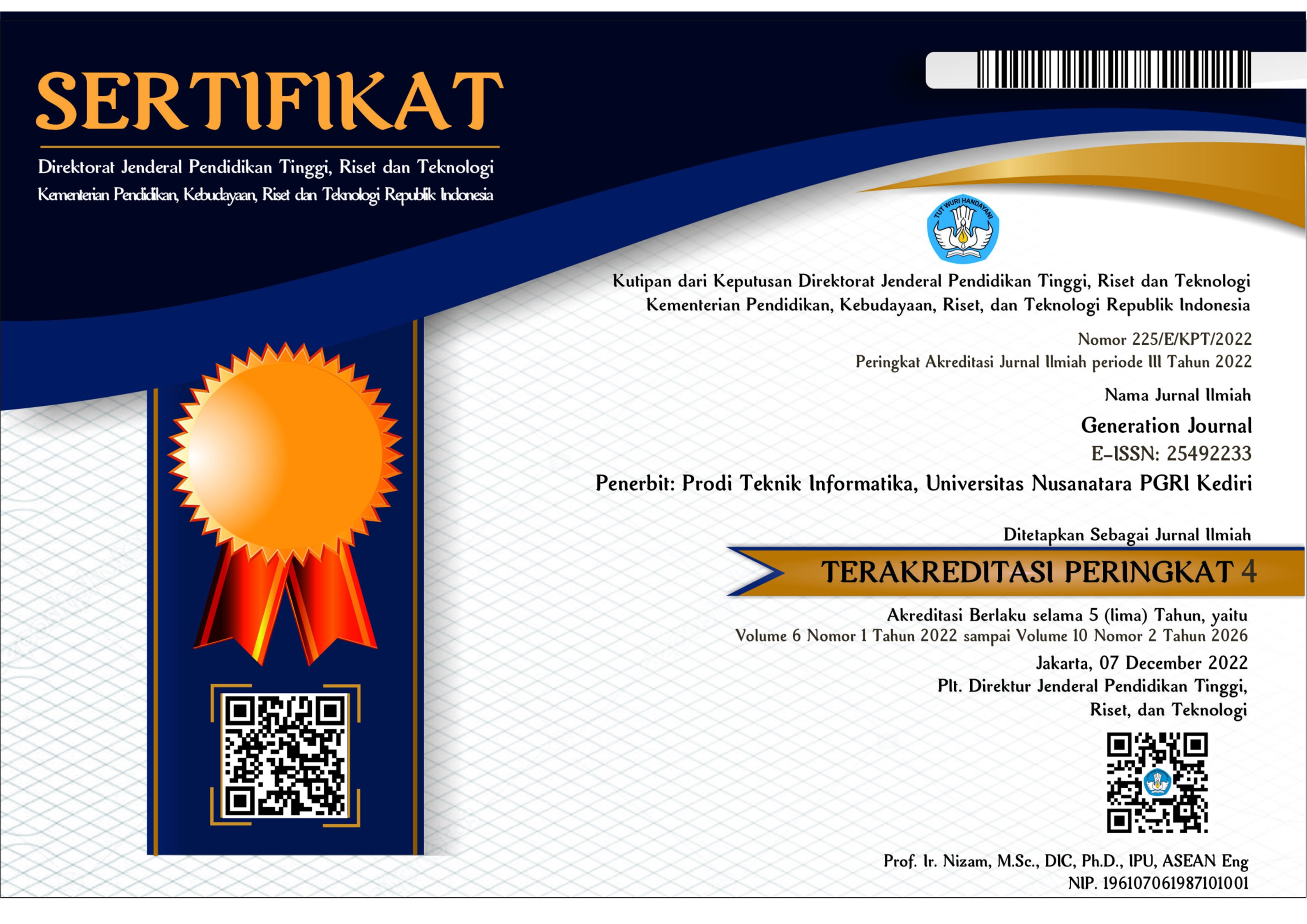Yayak Kartika Sari Implementasi Klasifikasi Data Mining Untuk Memprediksi Kelulusan Mahasiswa Menggunakan Algoritma Naive Bayes
DOI:
https://doi.org/10.29407/gj.v1i2.763Abstract
Abstrak – Universitas Nusantara PGRI kediri menghadapi kendala dalam prediksi
kelulusan mahasiswa, proses prediksi kelulusan mahasiswa membutuhkan waktu yang lama karena
proses perhitungan nilai mahasiswa dilakukan secara manual. Sehingga sangat diperlukan sebuah
sistem untuk pengambilan keputusan kelulusan mahasiswa. Penelitian ini bertujuan untuk
melakukan klasifikasi terhadap data kelulusan mahasiswa Program Studi Teknik FT UN PGRI
Kediri tahun 2011 dengan memanfaatkan proses data mining dengan menggunakan teknik
klasifikasi. Algoritma yang digunakan untuk klasifikasi kelulusan adalah Algoritma Naïve Bayes.
Naïve Bayes merupakan teknik prediksi berbasis probabilistik sederhana yang berdasar pada
penerapan teorema atau aturan. Pada penelitian ini Metode Naive Bayes digunakan untuk
menghitung probabilitas dari beberapa variabel yang telah ditentukan. Variabel yang digunakan
dalam penelitian yaitu nilai mahasiswa yang berhubungan dengan IT dari nilai semester satu
sampai semester akhir. Hasil dari proses perhitungan naive bayes berupa nilai perhitungan
probabilitas akhir serta sebagai rekomendasi bagi pengambilan keputusan untuk menentukan
kelulusan mahasiswa.
Downloads
Published
Issue
Section
License
Authors who publish with this journal agree to the following terms:
- Copyright on any article is retained by the author(s).
- The author grants the journal, the right of first publication with the work simultaneously licensed under a Creative Commons Attribution License that allows others to share the work with an acknowledgment of the work’s authorship and initial publication in this journal.
- Authors are able to enter into separate, additional contractual arrangements for the non-exclusive distribution of the journal’s published version of the work (e.g., post it to an institutional repository or publish it in a book), with an acknowledgment of its initial publication in this journal.
- Authors are permitted and encouraged to post their work online (e.g., in institutional repositories or on their website) prior to and during the submission process, as it can lead to productive exchanges, as well as earlier and greater citation of published work.
- The article and any associated published material is distributed under the Creative Commons Attribution-ShareAlike 4.0 International License














